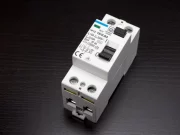
Traditional gas water heaters do not require electricity to function. They rely on a gas burner to heat water.
Are you exploring options for heating water in your home and wondering about the energy sources required for various systems? Gas water heaters stand out as a popular choice for many homeowners due to their efficiency and cost-effectiveness. Unlike electric water heaters that depend on electricity, traditional gas models use a burner ignited by a pilot light to warm the water and are thus not dependent on electricity.
This can be particularly advantageous during power outages, allowing you continuous access to hot water. Understanding the energy requirements for your household appliances helps ensure you choose the right fit for your home’s needs. Opting for a gas water heater can provide reliability and may reduce your utility bills, provided you have gas lines installed.
Myth Versus Reality: Electric Needs For Gas Water Heaters
Often, we encounter the belief that gas water heaters function independently of electricity. This section aims to distinguish fact from fiction regarding the electric needs of gas water heaters.
Common Misconceptions
Many hold the view that gas water heaters require no electricity. The truth is a bit more nuanced. Some gas water heaters do rely on electricity for certain components to function properly. Modern units with digital displays and electronic ignition systems, for instance, need electricity to start up.
- Gas water heaters are entirely independent of electricity: Not always true.
- All gas water heaters have a standing pilot light: This is outdated; many now have electronic ignitions.
- Gas water heaters are more failproof during power outages: Partially true; basic models may work, while advanced ones may not.
The Basic Principle Of Gas Water Heating
A gas water heater’s primary function involves burning natural gas or propane. Heat from the flame transfers to the water. A physical process known as convection aids in warming the water throughout the tank.
| Component | Function | Electricity Needed? |
|---|---|---|
| Gas Burner | Heats the water | No |
| Thermostat | Monitors water temperature | Sometimes |
| Ignition System | Ignites the burner | Often |
While the fundamental heating process does not require electricity, modern features often do. Knowing your water heater’s specifications provides clarity on its electricity dependence.
Key Components Of Gas Water Heaters
Understanding how a gas water heater works is essential. Let’s break down the key components.
Pilot Light And Thermocouple
The pilot light is a small flame that ignites the gas burner. Without electricity, it still functions. It’s simple yet crucial.
The thermocouple is a safety device. It detects if the pilot light is on. If the pilot light goes out, it stops the gas flow.
Gas Burner And Heat Exchanger
Gas burners produce heat by consuming fuel. They sit below the water tank.
Heat exchangers transfer heat from the burners to the water. They make the water hot.
The Role Of Electricity In Modern Gas Water Heaters
Traditional gas water heaters could operate without electricity. They used a pilot light to ignite the burner. Yet, modern gas water heaters are different. Many now need electricity. Understanding why can help you in emergencies.
Electronic Ignition Systems
Why use electronic ignition? It is safe and efficient. Older systems keep the pilot light on always. This wastes gas. Electric ignitions light the burner only when you need hot water.
- Intermittent Ignition Device (IID): This ignites the burner without a standing pilot light.
- On-Demand: Lights only when the water heater is in use.
- Energy Savings: Using electricity reduces gas consumption.
Power Venting Features
Modern gas water heaters often include power venting. What is power venting? It removes combustion gases with a fan. This makes venting more efficient. Let’s look at why power venting may need electricity.
| Feature | Function | Need for Electricity |
|---|---|---|
| Power Vent | Enhances gas combustion exhaust | Electric fan requires power |
| Horizontal Venting | Allows for more flexible installation | Relies on an electric fan to push out gases |
Without electricity: Such systems won’t function. In a power outage, no hot water will be available. Preparedness: Have a backup plan, like a generator.
When Does A Gas Water Heater Require Electricity?
Most folks think gas water heaters work without a spark of electricity. Truth be told, certain models do need power. Let’s dive into when and why your gas water heater might call for electricity.
Situations Calling For Electric Power
Modern gas water heaters might surprise you. They aren’t all old-school. Here are prime scenarios where electricity becomes a must:
- Electronic Ignition Systems: Say goodbye to pilot lights. These systems need electricity to start the heater.
- Digital Control Panels: To set temperatures with ease, a digital display is handy. But guess what? It needs power.
- Power Venting: For safety, toxic gases must leave. An electric fan takes care of this business.
Backup Options During Power Outages
No electricity, no hot water? Not necessarily. Consider these backup options when the power goes out:
- Battery-Operated Igniters: These gizmos will get your water heater fired up without main power.
- Generators: A standby generator can be a real hero. It keeps things running smoothly during an outage.
Selecting The Right Water Heater For Your Home
Choosing a suitable water heater requires a careful look at your energy sources and overall needs. Traditional gas water heaters generally do not require electricity and can be an excellent option for consistent hot water supply. Yet, several factors come into play when deciding on the right model for your home.
Assessing Energy Sources And Needs
Identify the energy forms available in your area. Natural gas, propane, or electricity impacts your choice dramatically. A gas water heater typically offers lower operational costs but may not be viable if gas is not readily accessible in your location.
- Gas availability
- Household hot water requirements
- Space for heater installation
Cost And Energy Efficiency Comparisons
When it comes to water heaters, both upfront costs and long-term savings matter. Gas heaters generally present a higher initial investment but lower running costs. On the other hand, electric water heaters often have a lower purchase price but can lead to higher electricity bills.
| Water Heater Type | Initial Cost | Energy Efficiency | Average Lifetime |
|---|---|---|---|
| Gas | Higher | Good | 10-12 years |
| Electric | Lower | Varies | 10-15 years |
Comparing the energy efficiency ratings helps narrow down choices. Seek units with the ENERGY STAR label for best performance.
- Review the Energy Factor (EF) rating.
- Consider future utility costs.
- Check for rebates and incentives.

Credit: www.gminsights.com
Maintenance Tips For Gas Water Heaters
Maintaining a gas water heater is crucial for safety and efficiency. Proper care extends the unit’s life and optimizes performance. Follow these tips to keep your heater in top condition. Let’s explore essential maintenance routines that help avoid common issues.
Regular Inspection Schedule
Regular inspections prevent unexpected breakdowns. Here’s what to include:
- Visual checks for rust or water leaks every month.
- Test the pressure relief valve semi-annually to ensure proper operation.
- Inspect the flame color and burner for dust or debris buildup quarterly.
- Annual professional inspection for a thorough assessment.
Troubleshooting Common Issues
Spotting problems early prevents costly repairs. Keep an eye out for these signs:
| Issue | Sign | Action |
|---|---|---|
| No Hot Water | Pilot light is out | Relight the pilot following manufacturer’s instructions |
| Poor Heating | Insufficient heat | Clean the burner, adjust thermostat |
| Noises | Popping or rumbling sounds | Flush tank to remove sediment buildup |
| Leaks | Water around heater | Check fittings and pressure valve |
Note: Seek professional help if issues persist. Regular maintenance ensures longevity and reliability of your gas water heater.
Frequently Asked Questions Of Do Gas Water Heaters Need Electricity
Will My Gas Water Heater Work Without Electricity?
Yes, most gas water heaters can operate without electricity since they don’t require power for heating water. However, some may need electricity for ignition or other functions.
How Do You Power A Gas Water Heater?
To power a gas water heater, connect it to a natural gas line or propane tank and ensure the pilot light is ignited. Regular maintenance ensures optimal performance.
Do Gas Heaters Use Electricity?
Yes, some gas heaters require electricity to power their fans and ignition systems. However, basic gas heaters can operate without electricity.
Does Gas Water Heater Have A Power Cord?
Most gas water heaters do not require a power cord because they use a pilot light to ignite the burner. However, some models with electronic ignition might need a power source.
Conclusion
Wrapping up, gas water heaters often operate without electricity. Yet, some components might need power for enhanced functionality. Always check your model’s requirements and plan for energy outages. Embracing this knowledge ensures a seamless hot water supply at home. Stay informed, stay prepared.




















